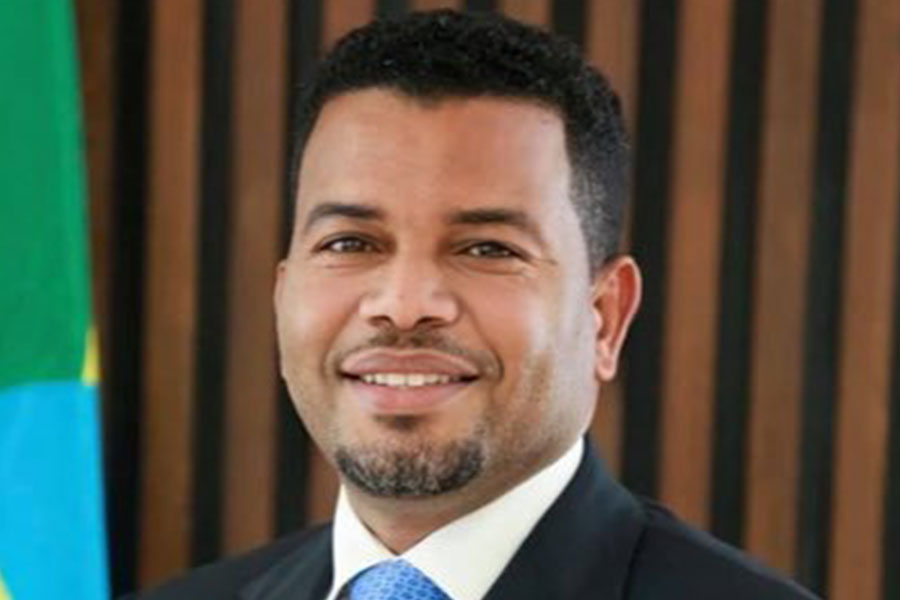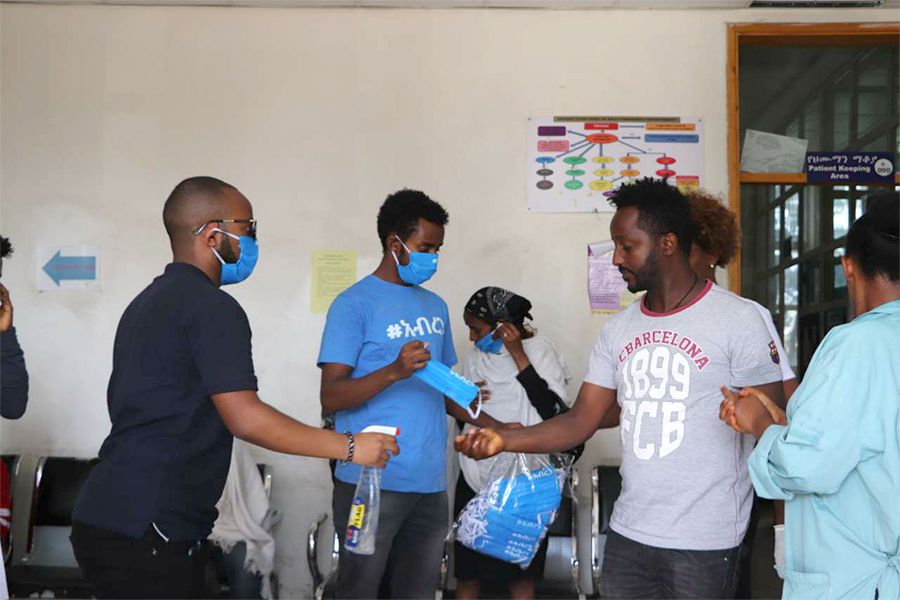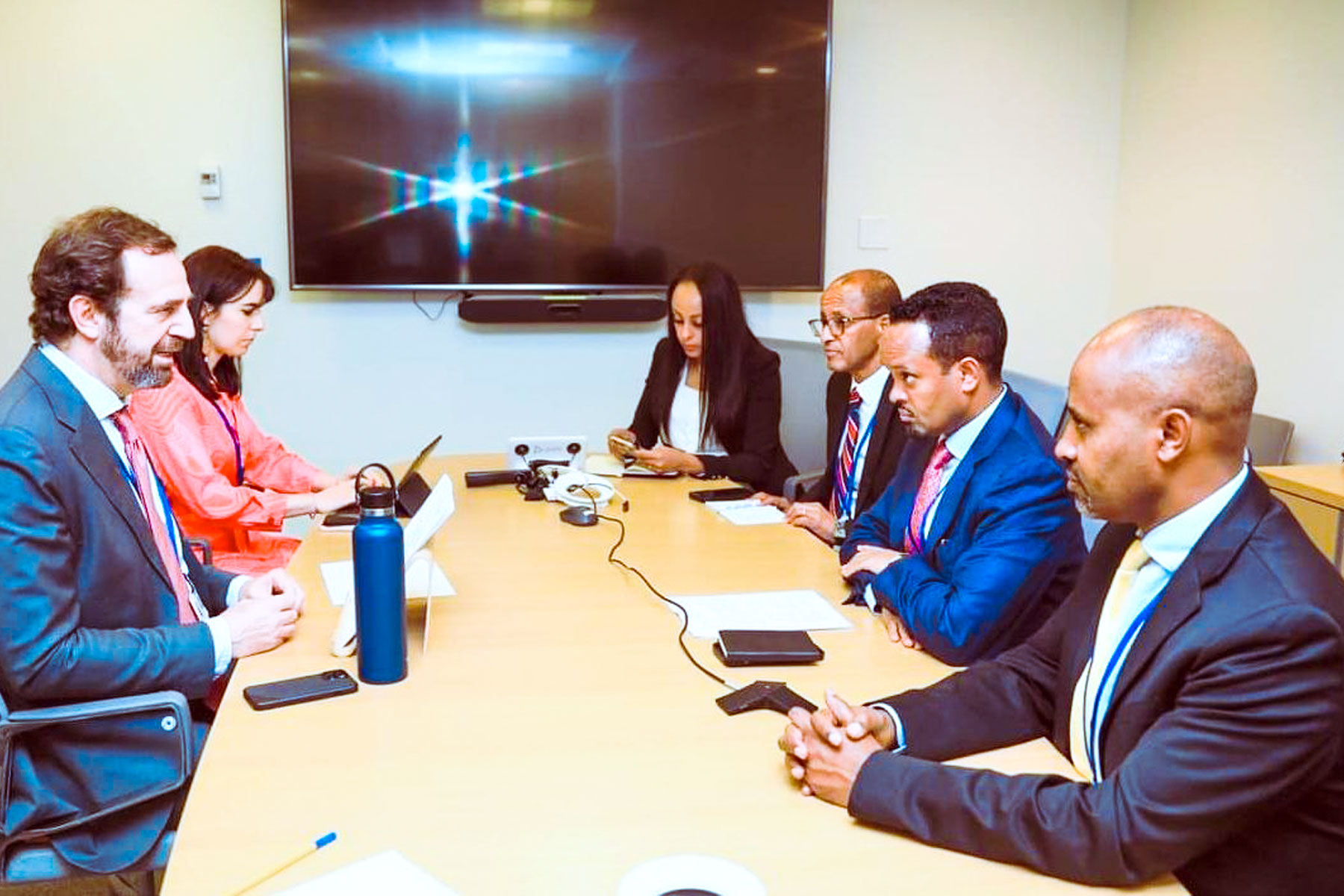
Commentaries | Dec 05,2018
Apr 17 , 2021
By Christian Tesfaye
The United States’ new 70-something president, Joe Biden, announced a full withdrawal of American troops from Afghanistan. He was standing in the same spot in the White House as his predecessor, former President George W. Bush, did when he fatefully declared the Middle Eastern country's invasion two decades ago.
Subsequent presidents promised an end to it, including Barack Obama and Donald Trump. Indeed, there has been a decided reduction in troop presence over the past decade. In the meantime, the Taliban, a group founded in Pakistan in the mid-1990s and with ties to Al-Qaeda, has been making gains against the Afghan Armed Forces.
While giving up the intractable “forever war” and withdrawing 2,500 of its troops, the US vaguely promises to help rebuilding and humanitarian efforts as well as a “suite of capabilities” to ensure stability in the Middle East. The North Atlantic Treaty Organisation (NATO) will match this with a withdrawal of its own 7,000 troops.
The debate rages. One side contests that this will replicate the security vacuum created in 2011 in the wake of the Obama administration's troop withdrawals from Iraq that led to the rise of the Islamic State of Iraq & the Levant (ISIL). Others contend that the threat of terrorism has been reduced and negotiation with the Taliban is the best possible alternative, no matter the policies it would likely follow.
Yet others hold that Biden's announcement is a sign of the Taliban’s staying power, an underdog wearing out the most militarily-capable world power. Indeed, this seems to be the case. It is intractable, but there is no doubt that US strategic analysts have warned the administration that the troop withdrawal only ends the war for the US, not for Afghanistan's people.
Let us tally the costs of war for the people, where everyone under 20 would not have known peace but would probably appreciate it more than most of us.
Between the Taliban, US Forces and the Afghan Armed Forces, up to 170,000 civilians have perished. In 2018 alone, 10,000 civilians are believed to have died, according to the Human Rights Watch. A third of these are children. Millions were displaced while Afghanistan continued to be at the forefront of a global opium market that kills 100,000 people annually and funds global terrorism.
It is obvious that other wellbeing outcomes would suffer as well, including health and education. In 2018, nearly half of all school-age children were not attending school.
Then, inevitably, war crimes were committed by both sides in the conflict, including US forces. It was a rain of brutality that left a society broken to its core, terrorised beyond comprehension and blighted for at least a generation.
The cruelty of war does not need reminding. There are too many examples worldwide, erupting time and time again even as everyone else is left aghast asking why anyone would start such a thing. More often than not, war is not the general public's choice, at least not once the details come out.
Usually, it is power politics by elites. In the Afghan case, the US tried to over-compensate for its shock of the terrible September 11 attacks by turning its might against forces deemed intolerable. For the Taliban, it is a fight to regain territory and economic and political power; perhaps even glory, however conceptualised. For Pakistan, which has been accused of supporting the Taliban, it is geopolitical security against India.
What did it all mean for the people of Afghanistan as the elephants fought? Absolute misery.
A reflective society will take heed for madness not to take over and to make every effort possible to build societal cohesion.
PUBLISHED ON
Apr 17,2021 [ VOL
22 , NO
1094]


Commentaries | Dec 05,2018

Viewpoints | Apr 02,2022

Commentaries | Jan 28,2023

Radar | Feb 22,2020

Fortune News | Aug 22,2020

Radar | Nov 14,2020

Addis Fortune | May 07,2022

Fortune News | May 28,2022

Radar | Feb 10,2024

Covid-19 | Mar 29,2020

Photo Gallery | 96741 Views | May 06,2019

Photo Gallery | 88924 Views | Apr 26,2019

My Opinion | 67168 Views | Aug 14,2021

Commentaries | 65760 Views | Oct 02,2021

Feb 24 , 2024 . By MUNIR SHEMSU
Abel Yeshitila, a real estate developer with a 12-year track record, finds himself unable to sell homes in his latest venture. Despite slash...

Feb 10 , 2024 . By MUNIR SHEMSU
In his last week's address to Parliament, Prime Minister Abiy Ahmed (PhD) painted a picture of an economy...

Jan 7 , 2024
In the realm of international finance and diplomacy, few cities hold the distinction that Addis Abeba doe...

Sep 30 , 2023 . By AKSAH ITALO
On a chilly morning outside Ke'Geberew Market, Yeshi Chane, a 35-year-old mother cradling her seven-month-old baby, stands amidst the throng...

Apr 20 , 2024
In a departure from its traditionally opaque practices, the National Bank of Ethiopia...

Apr 13 , 2024
In the hushed corridors of the legislative house on Lorenzo Te'azaz Road (Arat Kilo)...

Apr 6 , 2024
In a rather unsettling turn of events, the state-owned Commercial Bank of Ethiopia (C...

Mar 30 , 2024
Ethiopian authorities find themselves at a crossroads in the shadow of a global econo...

Apr 20 , 2024
Ethiopia's economic reform negotiations with the International Monetary Fund (IMF) are in their fourth round, taking place in Washington, D...

Apr 20 , 2024 . By BERSABEH GEBRE
An undercurrent of controversy surrounds the appointment of founding members of Amhara Bank after regulat...

An ambitious cooperative housing initiative designed to provide thousands with affordable homes is mired...

Apr 20 , 2024 . By AKSAH ITALO
Ethiopia's juice manufacturers confront formidable economic challenges following the reclassification of...